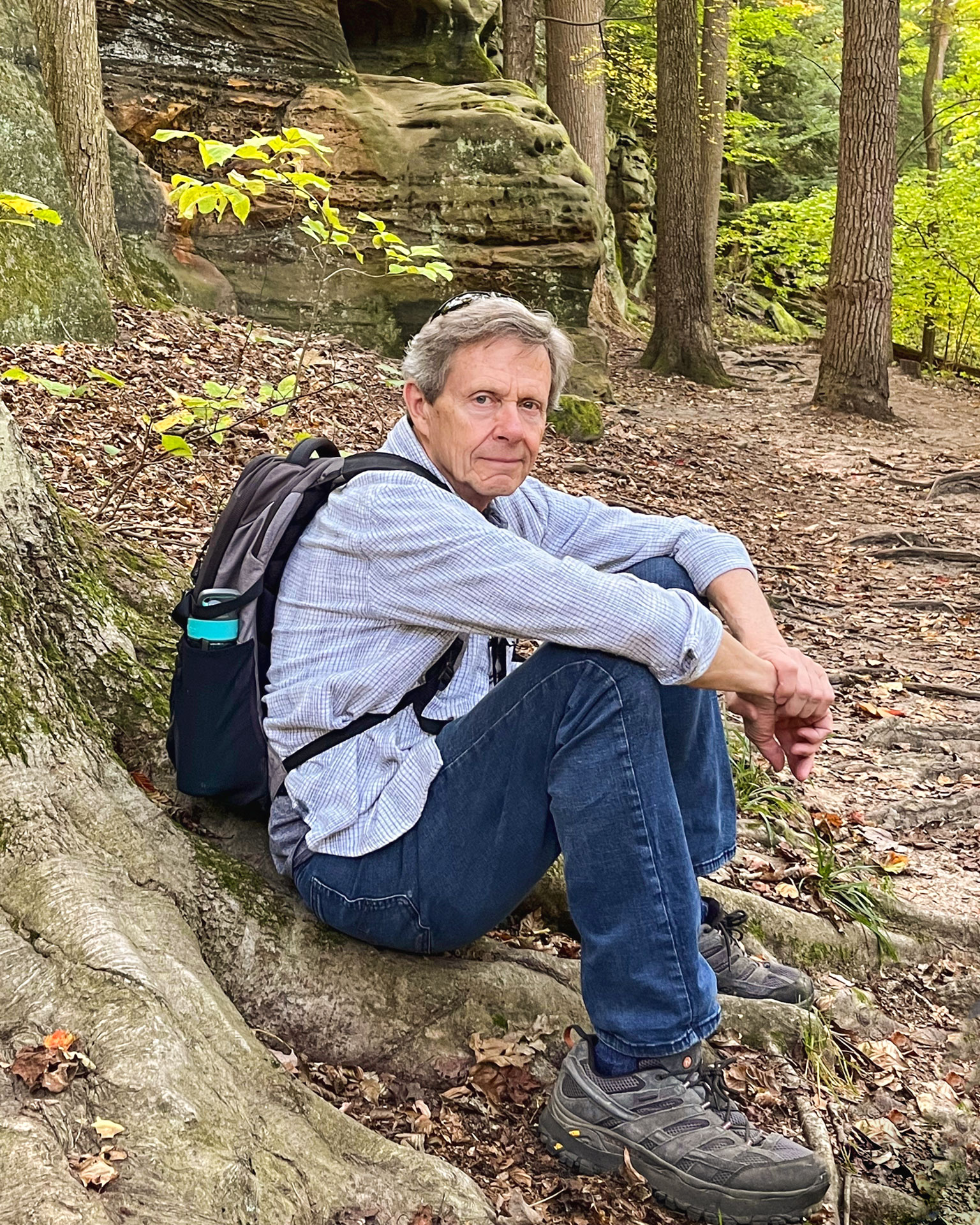Blog
Meet an Influencer: Connecting People to Protect Nature

A story by Connie O'Connor, on environmental influencer Bob Rack. This article is also featured in the October 6, 2023, issue of The Ripple.
Click here to learn more and subscribe to this monthly e-newsletter!
If you’ve ever had the pleasure of talking with Bob Rack, you’ll have noticed the deliberate, thoughtful, and respectful way he connects with others. Because he is a retired Chief Circuit Mediator at the U.S. Court of Appeals for the Sixth Circuit, his communication skills may come as no surprise. What is surprising is the extent to which he has chosen to act on his environmental and civic-minded values. His actions are examples of what it can look like to apply your strengths and skills to issues that matter to you.
Like many others, Bob tries to mitigate his negative impact on the planet by doing small, relatively easy steps like recycling, planting trees and native species, forgoing red meat, driving a hybrid car, donating to organizations that work to protect the environment, and the like. But, he says, "the more people involved, the bigger the projects you can do."
For example, his five-unit condo complex built and shares a community garden with composting. He helped raise money and interest for a tree planting program in Mt. Storm Park where he lives, and takes part in a group of science and animal welfare enthusiasts have been running a deer fertility control research study in Clifton to protect the environment by reducing the overabundant herd without lethal culling. None of these could be done by a single individual, and each involves collaborations between private citizens providing leadership, research and donations, and other partners such as the Cincinnati Park Board, the Parks Foundation, and the Wildlife Division of the Ohio Department of Natural Resources.
Connecting people for the common good is important to Bob. Environmental problems are caused by the collective actions of many people, and solving these problems likewise requires collective action. For people to act together, they need to find ways to work through differences and build trust. Toward this end, Bob co-founded a project called Beyond Civility: Communication for Effective Governance in 2011. He explains that it was intended to promote productive dialogue among civically active citizens holding differing beliefs about solutions to some of society’s more challenging problems. He hoped to reduce the ideological silos reinforced by “echo-chambers” of social media and to provide opportunities for genuine across-the-aisle discussion. Public events introducing leaders first as human beings were well attended, showing the demand for respectful dialogue and new perspectives.
A desire to connect with others who want to make the world a better place led to the formation of what he calls his "table group." Organized years ago, these now close friends meet bi-monthly over a meal to share perspectives and ideas for how to improve society and the environment. Backgrounds of the group members range from scientists, to lawyers, to agronomists, and public officials and no topic is off limits. Most people don’t deliberately set out to form a friend group that challenges, supports, and inspires them, but maybe more of us need to.
The trick, Bob says, is to build groups that are diverse yet compatible. He also advises that if we’re trying to influence people, we’re more likely to succeed by listening than telling and with our example than with arguments. He suggests socializing to make environmental conservation visible and fun. Most recently, Bob has served as a trusted advisor for Cincinnati Nature Center as we plan ways to empower members to take action that aligns with their conservation values.
Bob says, “It’s really hard to hear that we are part of the problem, and when we face the magnitude of the environmental damage we’ve already caused, we either want to deny it or shut down our sense of responsibility for it. It’s just too big. I believe it’s important to accept the facts and respond with compassion…for the suffering of the Earth and for the plight we face as one of its precious species. The more we can recognize our common interests with, and our common dependence on a healthy biosphere, the more likely we are to think and act, collectively and as individuals, in the best interest of the planet.”
What doesn’t work, Bob says, is shaming and blaming. “It only makes us more defensive and divides us. Accepting responsibility for the health of the Earth and our children’s future is a huge task that needs all the support and cooperation we can muster. I believe that anything we do to foster a sense of unity, among ourselves and with all of our brother and sister species, will help more than we can know. Whether we recognize it or not, we’re all in this soup together.”